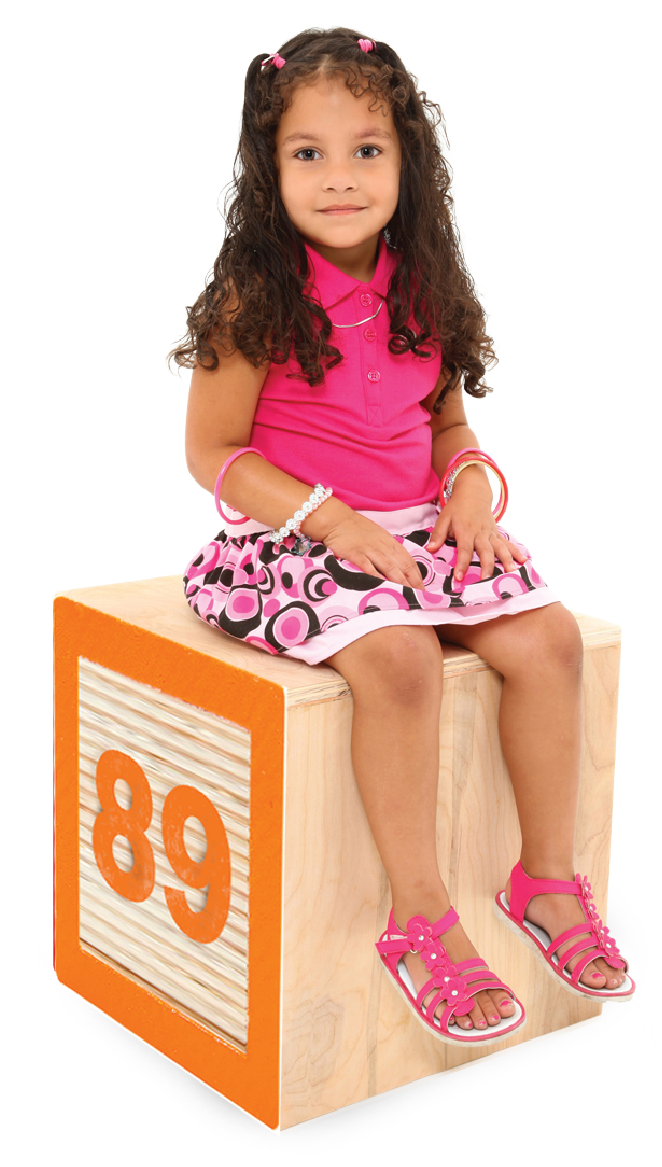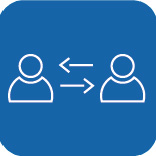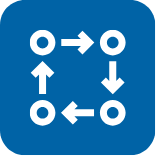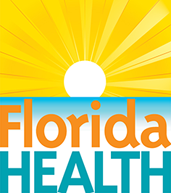Lutheran Services Florida Inc. (LSF) is a proud Head Start grantee providing services across the following counties:
As a Head Start grantee, LSF may subcontract services to local, qualified partners through various arrangements to ensure effective delivery of early childhood education and support services.

What is Head Start?
Head Start is a comprehensive early childhood education program that provides children from low-income families with the opportunity to develop the skills they need for success in school and life. Established in 1965, Head Start focuses on fostering the cognitive, social, and emotional growth of children from birth to age five. The program promotes school readiness by offering a variety of services, including:
- Early Childhood Education: High-quality learning experiences tailored to children’s developmental needs.
- Health Services: Health screenings, nutritional meals, and assistance with accessing medical and dental care.
- Family Engagement: Support for parents and caregivers to strengthen their role as primary educators and advocates for their children.
- Social Services: Assistance with accessing community resources to support family stability and well-being.
The program emphasizes inclusive practices to serve children with disabilities and provides culturally responsive services to meet the needs of diverse families.
By addressing the comprehensive needs of children and their families, Head Start helps to lay a strong foundation for lifelong learning and success.
Head Start operates in various settings to support early childhood education and development. These settings include:
- Homes
- Centers
- Partnerships with Local Community Organizations
Within Lutheran Services Florida (LSF), there are three primary types of partnerships:
- Family Child Care Home (FCCH):
- Description: These are private homes where child care providers offer care and education in a family-style setting. FCCHs are often operated by individuals who are licensed and meet specific requirements to provide early childhood education and care.
- Role in Head Start: FCCHs provide a more personalized and home-like environment for children, supporting individual needs and fostering a nurturing atmosphere.
- Child Care Partner (CCP):
- Description: Child Care Partners are formal agreements between Head Start and community-based child care centers. These centers offer structured early childhood programs and often have larger capacities compared to FCCHs.
- Role in Head Start: CCPs expand access to early childhood education by collaborating with established child care centers, ensuring that a wide range of community resources are utilized for the benefit of the children.
- Delegate Agency:
- Description: Delegate Agencies are organizations that have been given the authority to operate a Head Start program or a portion of it on behalf of LSF. These agencies are responsible for implementing Head Start’s comprehensive services and meeting its standards and regulations.
- Role in Head Start: Delegate Agencies help in managing and delivering Head Start services in various regions, ensuring that local needs and standards are met while maintaining alignment with Head Start’s overall objectives.

- Child Enrollment: LSF manages the enrollment process, placing children directly into your program.
- Curriculum Support: Benefit from a research-based curriculum provided by LSF.
- Comprehensive Support: Access assistance from LSF departments, including:
- Education: Enhance classroom instruction.
- Family and Child Engagement: Increase family involvement.
- Health Services: Support for health screenings and nutrition.
- Quality Assurance: Ongoing evaluations and improvements.
- Cost Savings: Access LSF resources for cost savings on classroom supplies and more.

Support Early Childhood Development:

Address Community Needs:

Leverage Expertise:

Build Local Networks:

Access Resources:

Ensure Quality:

Empower Families:
- Daily Rate: Providers receive a daily rate based on the number of contracted children.
- Paid Annual Training: Compensation for participating in required training sessions.
- Paid Planning Days: Designated paid days for program planning and preparation.
- Paid Wellness Days: Paid days to support staff well-being and prevent burnout.
The CCFP helps child care facilities implement “best practices” to ensure children have access to a variety of nutritious foods for healthy growth and to reduce obesity risk.
The CCFP and two related programs, the Afterschool Meals Program and the Homeless Children Nutrition Program, are administered by the Bureau of Child Care Food Programs. The Bureau reimburses participating organizations for nutritious meals and snacks provided to children in their care. Participating facilities include childcare centers, family day care homes, recreational centers, afterschool educational or enrichment programs and domestic violence and homeless/runaway shelters. All three programs are funded by the U.S. Department of Agriculture, Food and Nutrition Service.
To find out how your organization can participate in the Child Care Food Program, Afterschool Meals Program, or Homeless Children Nutrition Program, please visit the Florida Health Website to learn more.
Please complete the form below to submit your information to our Procurement Department for review. Once submitted, your details will be securely stored until a relevant opportunity arises. When an opportunity becomes available, the Procurement will send you a Request for Proposal (RFP) via email, detailing the requirements and instructions for submitting your documentation.
Lutheran Services Florida (LSF) selects Head Start and Early Head Start partners through a rigorous, competitive process aimed at ensuring high-quality services for children and families. The selection process includes the following steps:
- Eligibility Requirements:
Prospective partners must meet specific eligibility criteria, including:- Holding a valid child care license.
- Maintaining appropriate insurance coverage.
- Demonstrating recent experience in child care.
- Having a contract with the Child Care Food Program (CCFP).
- Request for Proposal (RFP) Process:
When opportunities arise, LSF issues a Request for Proposal (RFP) to all providers who have submitted their contact information through our Expression of Interest form. The RFP is also publicly posted on lsfnet.org/procurement. The RFP details the requirements, expectations, and standards that potential partners must meet. Interested providers are required to:- Submit all required checklist items as specified in the RFP.
- Undergo a site visit by LSF for a Quality Assurance (QA) report, which will be provided to the evaluation committee for review and scoring.
- Evaluation and Selection:
A panel of experts evaluates the submitted proposals based on predefined criteria, including:- Appropriate Service for Achieving the Purpose of the RFP.
- The Ability to Provide Service, as well as Past Performance of the Offeror.
- Submitted Checklist Criteria (More complete checklist documentation submitted prior to the due date generally results in higher scores).
- Quality Assurance (QA) Report: Facility Findings.
- Playground Evaluation Report and Findings.
- Final Approval and Contracting:
Providers that successfully pass all evaluation stages and demonstrate high-quality service delivery are selected as finalists. The Program Directors will further review all submitted information and assess the need within the finalists’ zip codes. Based on this assessment, they will decide whether to proceed with formal agreements. If a provider is selected, the final agreement will be reviewed and, if accepted, formalized with LSF.
- Copy of Child Care License(s)
- Legal Names and Titles: Provide the legal names and titles of individuals with signature authority for the contract period. Include a letter from the Board if applicable.
- IRS Form W-9
- Floor Plans: Submit floor plans for all sites.
- Real Estate Survey Report: Provide a copy of the Real Estate Survey report for all sites.
- Fire Safety Inspection: Copy of the current Fire Safety inspection conducted by the local Fire Marshal (must be signed by the Fire Marshal).
- Proof of Liability Insurance: Documentation of liability insurance coverage for the contract period.
- CCFP Food Program Participant Agreement: Available at Florida Health CCFP.
- Financial Statements: Last three years of tax returns, balance sheets, and income statements.
- Level II Background Check: Copy of Level II background checks for the owner and Education Director.
- Department of Children and Families Reports: Copies of inspections and complaints from the last 24 months.
- Emergency Preparedness Plan: Current plan and list of emergency contacts.
- Substitute Staff Plan: Written plan for staff substitutes.
- Capacity Summary: Copy of Department of Children and Families capacity summary for indoor and playground space.
- Accreditation Letters: Accreditation letters (e.g., APPLE, NAEYC) or a written statement if applicable.
- Quality Ratings: QRIS, Guiding Star Certification, Strong Minds Certification, or a written statement if applicable.
**Please Note: Do not submit these documents in advance of any opportunity. They will not be held or reviewed until a relevant Request for Proposal (RFP) is issued.
If you have any questions after reviewing the contents of this website, please reach out to:

Lisa Schultz
Lisa.Schultz@lsfnet.org





